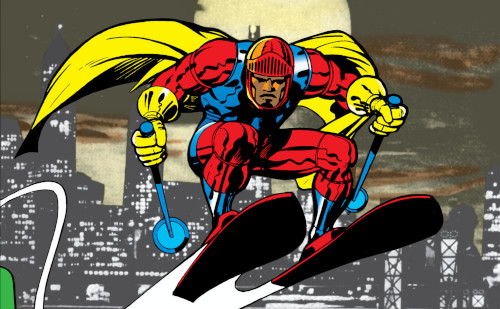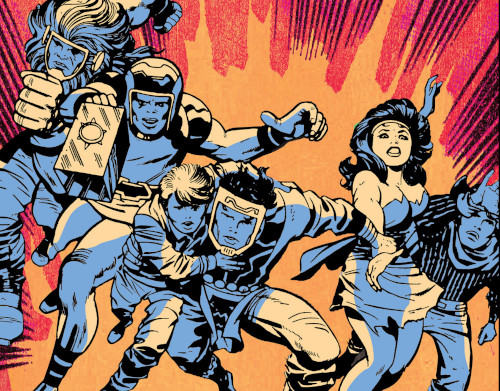
John Morrow is co-founder of Two Morrows Publishing, a company that owes its start to John’s interest in Jack Kirby. His Kirby fan newsletter grew into the company that’s now publishing his history of Kirby’s Fourth World, much of it told in Jack’s own words: Old Gods and New. This time, Emmet talks with John about Marvel’s fear that DC would end them after Kirby switched sides, how distribution quirks may have led to the premature end of the Fourth World books, how myth runs through all of Kirby’s work dating back to the ’30s, and more.
Brought to you by:
Podcast: Play in new window | Download

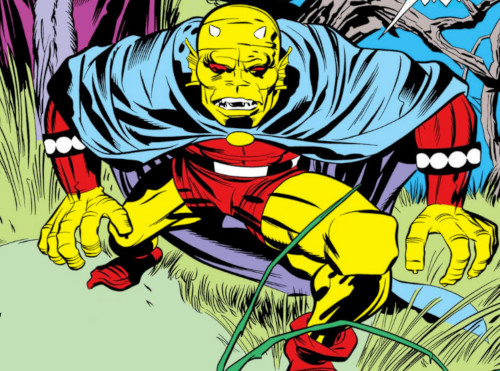 After leaving DC’s Jimmy Olsen book, Jack Kirby needed something else to keep his monthly page count up to the level he had contracted for. One of the books he came up with was The Demon, the result of his being asked to do a “monsters and mystery” book. But Kirby didn’t have a lot of interest in that genre; was that to the disadvantage of the book, or to its advantage? Tim and Emmet discuss this 16-issue series.
After leaving DC’s Jimmy Olsen book, Jack Kirby needed something else to keep his monthly page count up to the level he had contracted for. One of the books he came up with was The Demon, the result of his being asked to do a “monsters and mystery” book. But Kirby didn’t have a lot of interest in that genre; was that to the disadvantage of the book, or to its advantage? Tim and Emmet discuss this 16-issue series.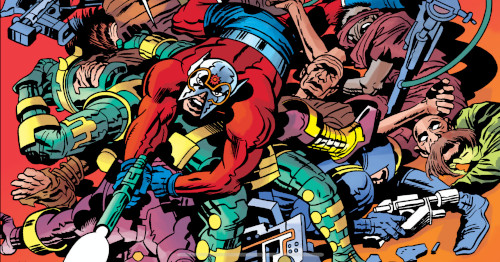 Jack Kirby’s final Fourth World story is the 1984 graphic novel The Hunger Dogs, which continues some of the themes we saw in Even Gods Must Die, such as the encroachment of technology. Tim and Emmet complete their reading of the Fourth World and ponder how aware George Lucas may have been of the New Gods.
Jack Kirby’s final Fourth World story is the 1984 graphic novel The Hunger Dogs, which continues some of the themes we saw in Even Gods Must Die, such as the encroachment of technology. Tim and Emmet complete their reading of the Fourth World and ponder how aware George Lucas may have been of the New Gods.
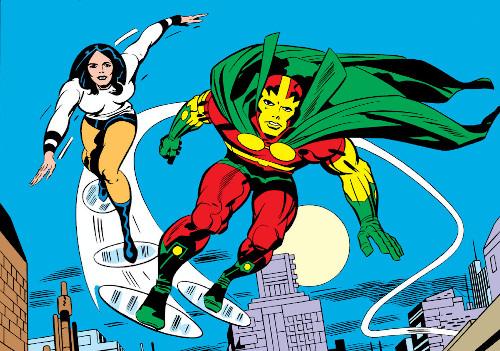

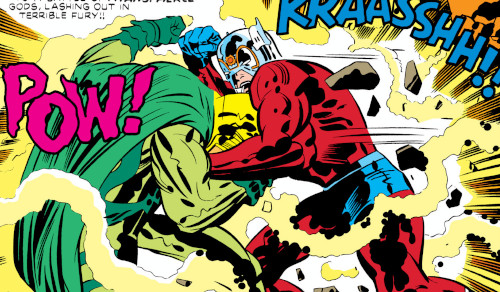
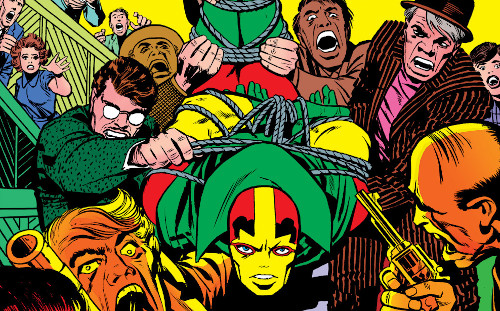
 Jack & Roz Kirby
Jack & Roz Kirby